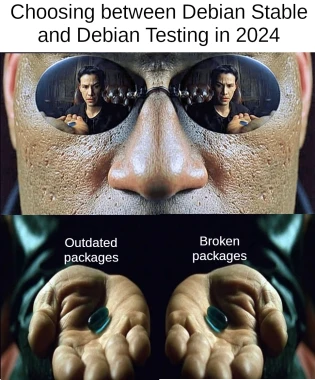Debian used to be so good. What happened!?
Firefox on Debian stable is so old that websites yell at you to upgrade to a newer browser. And last time I tried installing Debian testing (or was it debian unstable?), the installer shat itself trying to make the bootloader. After I got it to boot, apt refused to work because of a missing symlink to busybox. Why on earth do they even need busybox if the base install already comes with full gnu coreutils? I remember Debian as the distro that Just Wroks™, when did it all go so wrong? Is anyone else here having similar issues, or am I doing something wrong?
